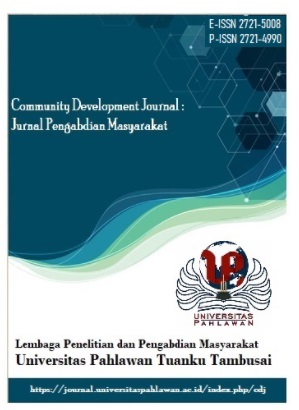A PROBE INTO THE IMPACT OF TEACHER’S ASSESSMENT ON STUDENTS’ ENGAGEMENT IN EFL LEARNING : VIEWS FROM EFL SCHOOL TEACHERS
DOI:
https://doi.org/10.31004/jrpp.v7i2.27256Keywords:
EFL, Motivation, Student Engagement, Teacher Assessment.Abstract
Teacher assessment is a crucial factor in fostering students' motivation to improve their foreign language skills and language competency during the learning process. Engaging students in active learning has been proposed as a means to enhance learning outcomes, motivation, and attitudes towards learning. Although previous research acknowledges the significance of assessment in shaping these factors, there is a lack of specific investigation in this area. The objective of this study is to elucidate the intricate correlation between teacher assessment and student engagement in the English as a Foreign Language (EFL) classroom. This research uses a qualitative research design by conducting direct interviews to collect and analyze data. There are 3 of the 4 English teachers at SMP Swasta Al-Muslimin Pandan were included in the study at random as participants. The results of research perceived by EFL school teachers reveal that involving students in the assessment process, such as through self-assessment and peer assessment activities, further enhanced their engagement and ownership of their learning journey.References
Bennett, S. (2018). Inclusive pedagogy in the early years: A handbook for teachers. Routledge.
Birjandi, P., & Tamjid, N. H. (2012). The role of self-, peer and teacher assessment in promoting Iranian EFL learners’ writing performance. Assessment & Evaluation in Higher Education, 37(5), 513–533. https://doi.org/10.1080/02602938.2010.549204
Black, P., & Wiliam, D. (1998). Assessment and classroom learning. Assessment in Education: Principles, Policy & Practice, 5(1), 7–74. https://doi.org/10.1080/0969595980050102
Creswell, J. W. (1994). Research Design: Qualitative, quantitative, and mixed methods approaches. http://www.revistacomunicacion.org/pdf/n3/resenas/research_design_qualitative_quantitative_and_mixed_methods_approaches.pdf
Dilg, M., & Paley, V. G. (2003). Thriving in the Multicultural Classroom: Principles and Practices for Effective teaching. http://ci.nii.ac.jp/ncid/BA63592699
Dmitrenko, N. ., Budas, I. ., Koliadych, Y. ., & Poliarush, N. . (2021). Impact of Formative Assessment on Students’ Motivation in Foreign Language Acquisition. East European Journal of Psycholinguistics , 8(2), 36-50. https://doi.org/10.29038/eejpl.2021.8.2.dmi
Farhat, N. J., Stanford, C., & Ruder, S. M. (2019). Assessment of student performance on core concepts in organic Chemistry. Journal of Chemical Education, 96(5), 865–872. https://doi.org/10.1021/acs.jchemed.8b00913
Gulikers, J., Veugen, M., & Baartman, L. (2021). What are we Really Aiming for? Identifying Concrete Student Behavior in Co-Regulatory Formative Assessment Processes in the Classroom. Frontiers in Education (Lausanne), 6. https://doi.org/10.3389/feduc.2021.750281
Harmer, J. (2015). The practice of English language teaching. Pearson Education Limited. https://doi.org/10.1177/1365480207078048
Herman, J. L., Osmundson, E., Ayala, C., Schneider, S., & Timms, M. (2006). The Nature and Impact of Teachers’ formative Assessment Practices. CSE Technical Report 703. National Center for Research on Evaluation, Standards, and Student Testing. https://eric.ed.gov/?id=ED495850
Huang, J. (2014). Project-based learning and student engagement. International Journal of Teaching and Learning in Higher Education, 26(3), 342-350. https://journal.uniku.ac.id/index.php/ERJEE
Kong, Y., Molnár, E. K., & Xu, N. (2022). Pre- and In-Service Teachers’ Assessment and Feedback in EFL Writing: Changes and challenges. SAGE Open, 12(3), 215824402211266. https://doi.org/10.1177/21582440221126672
Kumaravadivelu, B. (2006). Understanding language teaching: From Method to Postmethod. Routledge.
Long, M. H. (2015). Second language acquisition and task-based language teaching. John Wiley & Sons.
Ministry of Education, Malaysia. (2019). Kurikulum Standard Sekolah Rendah (KSSR) KSSR Sekolah Menengah (KSSM) Pelajaran Bahasa Inggeris. Putrajaya: Kementerian Pendidikan Malaysia.
Nita, F. R., & Anam, S. (2021). Secondary EFL Teachers’ Views Towards the Implementation of Peer Assessment: Between Opportunities and Challenges. Journal of English Language Teaching, 8(2), 352–364. https://doi.org/10.26858/eltww.v8i2.21338
Nunan, D. (2015). Learner-centered English language education: The selected works of David Nunan. Routledge.
Reeve, J., & Tseng, C. (2011). Agency as a fourth aspect of students’ engagement during learning activities. Contemporary Educational Psychology, 36(4), 257–267. https://doi.org/10.1016/j.cedpsych.2011.05.002
Richards, J. C., & Rodgers, T. S. (2014). Approaches and methods in language teaching. https://doi.org/10.1017/9781009024532
Ryan, R. M., & Deci, E. L. (2017). Self-determination theory: Basic psychological needs in motivation, development, and wellness. Guilford Publications.
Safei, N. H., & Salmah, S. (2022). Teacher perception on EFL students’ engagement in Project-Based Learning. Al Lughawiyaat (Online), 3(1). https://doi.org/10.31332/alg.v3i1.2753
Tomlinson, C. A. (2014). The differentiated classroom: Responding to the Needs of All Learners. ASCD.
Tran, Q. T. T., & Van Nguyen, L. (2020). EFL Student Engagement in an English for Specific Purposes Tourism Class: Flipping the Class with Facebook. In Springer eBooks (pp. 175–202). https://doi.org/10.1007/978-3-030-34212-8_7
Wu, X., Zhang, L. J., & Liu, Q. (2021). Using Assessment for Learning: Multi-Case studies of three Chinese university English as a Foreign Language (EFL) teachers engaging students in learning and assessment. Frontiers in Psychology, 12. https://doi.org/10.3389/fpsyg.2021.725132
Downloads
Published
How to Cite
Issue
Section
License
Copyright (c) 2024 Widya Amalia Tarihoran, Dewi Kesuma Nasution

This work is licensed under a Creative Commons Attribution-ShareAlike 4.0 International License.






